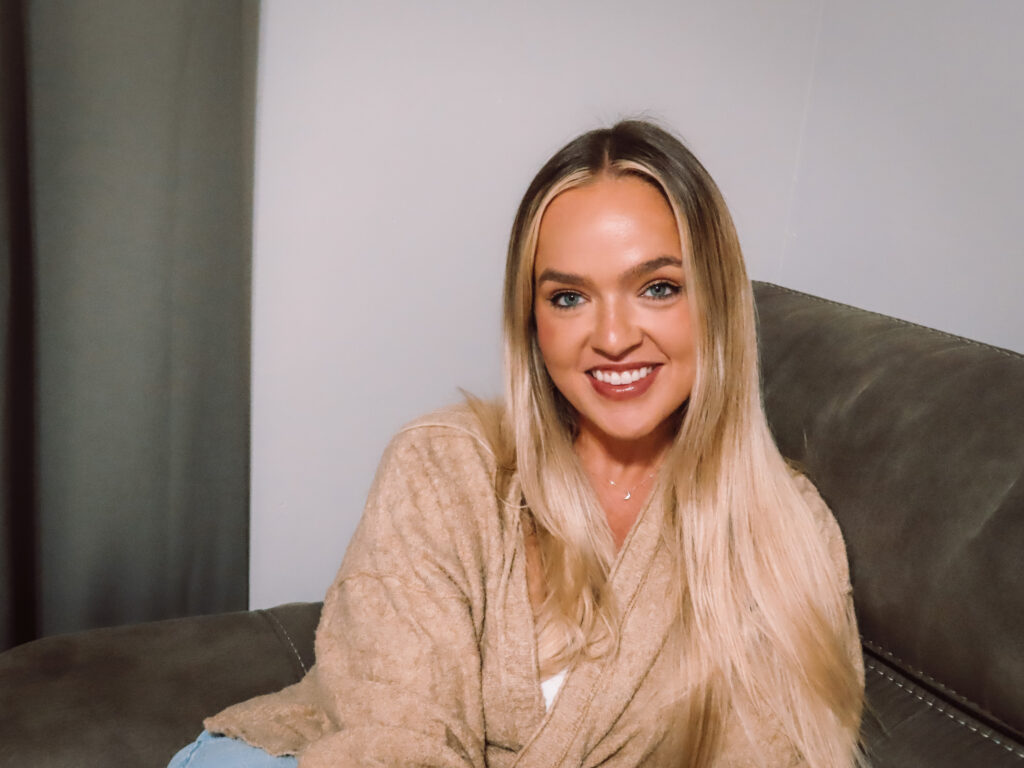menu


Ketamine Assisted-Psychotherapy may be Helpful in Eating Disorder Recovery
Ketamine Assisted-Psychotherapy may be Helpful in Eating Disorder Recovery
category 4
category 3
category 2
category 1
blog
categories
book your 1:1 call
connect with me
I utilize my own shared recovery experience to provide compassionate recovery care and empower clients to a life of health and wellness.
a Certified Eating Disorder Recovery Coach based in Dallas, Texas.
i'm merrit elizabeth
Looking for information on bulimia specifically?
visit the conquering bulimia blog
Ketamine-Assisted Psychotherapy has gained popularity in recent years as a cutting-edge treatment used to treat patients suffering from a variety of mental health disorders. Today I sat down with licensed therapist and Certified Eating Disorder Specialist Danielle Carney to understand more about the process and eligibility.
Danielle is the founder of Full Bloom Therapy. She specializes in anxiety, eating disorders, body image, relationships and dating, and of course, ketamine-assisted psychotherapy. She is passionate about helping women break out of self-defeating cycles. I am proud to feature her wisdom on the blog!

1. What inspired you to offer ketamine-assisted psychotherapy to your clients?
I have had an interest in psychedelic-assisted therapies for a while! Last summer, I attended a continuing education retreat in Costa Rica where I spent a week learning about the current research and treatment implications of psychedelics for mental health. From what I learned, the healing power psychedelics hold is unquestionable, especially when paired with the therapeutic alliance.
They allow us to tap into and speed up neuroplasticity (the brain’s natural change process we target in therapy) in a more substantial way than any known therapy to date can. I was really excited to apply what I learned in practice, but since the research is still emerging and many treatments are not yet available in the US, ketamine-assisted therapy allows me to do that!
2. Please take me through a typical KAP session, starting with any client preparation that may be necessary.
After I meet with a client for the usual therapy intake process, explore current symptoms, relevant history, and discuss if KAP would be a good fit, I would refer them to a collaborating prescriber. The prescriber will do their own medical evaluation and assess eligibility on their side. If a client is a candidate for KAP, they are prescribed medication for their first two KAP sessions with me, and it is mailed to them.
The KAP process consists of three types of sessions – preparation, dosing, and integration.
In preparation sessions, we discuss any intentions a client has for their dosing sessions and address any hesitations or concerns they might have about the process. This can take as little as one session but can often be a longer process depending on the client and their needs and level of readiness.
Dosing sessions are exactly what they sound like. They are usually scheduled for 3 hours with about 1-1.5 hours being the actual ketamine experience. If it is a remote session, I check in with the client’s designated chaperone to make sure they understand what is required of them during the process. The chaperone is required to be physically present in the same residence of the client for the duration of session, but they don’t need to be a part of the session or be in the same room unless desired by the client.
We might start a dosing session by reviewing intentions for the session and prepare by doing a grounding or relaxation exercise or meditation, and then the client takes their own blood pressure. From there, the client self-administers the medication sublingually using the “swish and spit” method and goes into their journey. An eye mask and headphones are recommended to assist with deepening the internal experience, and I am happy to provide playlist recommendations for the music played throughout the experience.
I am present with the client remotely the entirety of the experience to hold space and support, but verbal processing isn’t necessary during the journey unless desired.
There is a pretty natural end to the journey. Once someone comes out of their journey, there is time for journaling, art, and/or sharing what feels important in that moment.
Within a few days we’d meet again for an integration session to further process the experience, discuss any insights, and identify how it can be applied and translated into action towards someone’s treatment goals.
This process repeats for an average of 8 sessions with follow ups with the prescriber to monitor progress and dosing along the way, but the process is deeply individual and flexible to someone’s needs.
3. Who is the ideal client for KAP, and who is not?
The ideal client for KAP is someone 18 or older who is motivated to grow personally, understand themselves more deeply, curious about alternatives to talk therapy, and meets criteria for an eligible diagnosis. KAP is beneficial for a variety of presenting concerns including eating disorders, trauma, anxiety, depression, substance use, adjustment disorders, bipolar disorder, and OCD. Clients must be willing to establish a therapeutic relationship with me prior to beginning the KAP process.
Clients who are currently experiencing uncontrolled substance abuse or an unstable or contraindicated medical or psychiatric condition are not good candidates for KAP. This would be determined through the intake process and medication evaluation.
4. Is KAP solely for clients struggling with depression or do you use it in the treatment of other illnesses as well?
As mentioned above, KAP can be helpful for a variety of presenting concerns and definitely not limited to just treating depression! Some other issues KAP might be beneficial with are eating disorders, anxiety, OCD, trauma, adjustment disorders, bipolar disorder, and substance use.
5. What improvements have you seen in clients with eating disorders who have completed KAP with you?
Since I have just started offering KAP, I unfortunately cannot speak to this firsthand yet but I can keep you posted!
For now, I can say this – the research and self-reports of people who have experienced KAP show correlations with improvements in cognitive flexibility which helps people break through old patterns of thinking and behavior as well as increased self-awareness and insight that can provide the opportunity for change. KAP has also been reported to lead to more emotional breakthroughs because it allows clients to tap into unprocessed or repressed emotions or memories.
6. What are the potential negative side effects of KAP and how do you educate the clients and their families in order to make an informed decision?
Ketamine is a very safe medication, and many report the experiences they have with ketamine to be pleasant. With that being said, ketamine creates an “out-of-body”-like experience which can be disarming for some people, and challenging experiences are rare but possible. Some can experience emotional or perceptual changes for the few hours immediately after a KAP session.
Sometimes difficult emotional experiences come up during the journey. Physically, nausea, changes to vision, or difficulties with balance are possible right after a KAP session. Any negative side effects are usually temporary and resolve quickly after the dosing session, and most can be avoided through preparing well. That is the value of having a therapist alongside you throughout this process to help support you if challenges occur and integrate whatever might be useful to look at together even in those challenges.
KAP is not for everyone, and it is natural to be nervous, hesitant, or have concerns — even if someone is very motivated to go through with the process. I am always open to answering any questions and speaking to concerns with my clients and their support systems throughout the intake and preparation process. I explain the process thoroughly to give an idea of what to expect and also often will send my client links to the current research as well as to videos of people recounting their experiences with KAP to aid in the decision-making process.
Danielle is based in Fort Lauderdale, Florida, and can see clients virtually in Delaware, North Carolina, South Carolina, and Florida. Ketamine-Assisted Psychotherapy is only available remotely in Florida. You can reach out to her here.
Published by Merrit Elizabeth on May 1, 2024.

Merrit Elizabeth Stahle is an Eating Disorder Recovery Coach certified by The Carolyn Costin Institute. She holds a master’s degree in Health Promotion Management and a certification in Applied Neuroscience. She is fully recovered from an eating disorder and she has years of experience working with women with eating disorders.
Leave a Reply Cancel reply
next post
previous post
browse categories
read or leave a comment +